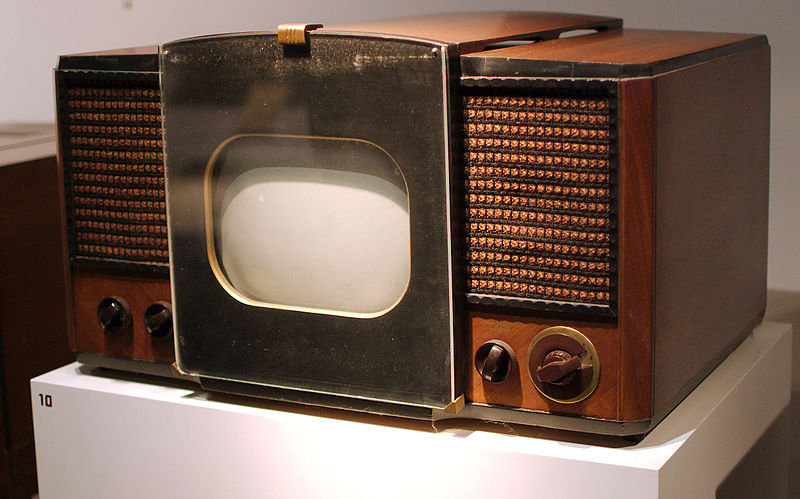When researching for the Each One Teach One Project (EOTO) as the individual responsible for the history of the television. Though multiple inventors across the world were in competition for producing an adequate demonstration of the first successful television, Philo Taylor Farnsworth was first to the chase on September 7, 1927.
The main inventor he beat, Boris Rosing from Russia, had conducted some original experiments before Farnsworth's invention came out, but ultimately did not finish the final product of the first television before Farnsworth. This took place in San Fransciso when Farnsworth was only 21.
 Its purpose, to simply create moving images on a screen by using radio waves, could be applied in a plethora of way to better other industries such as marketing, communications and academics. This was extremely attractive to investors who wanted to capitalize on this new technology.
Its purpose, to simply create moving images on a screen by using radio waves, could be applied in a plethora of way to better other industries such as marketing, communications and academics. This was extremely attractive to investors who wanted to capitalize on this new technology.
RCA, the company that dominated the radio industry in the United States at the time, invested $50 million dollars in the invention of the television to further develop it with its two owned channels being on the forefront of television usage. Those two channels, known then and still today as ABC and NBC, were the first two channels ever invented.
On May 17, 1939, the first televised baseball game was broadcasted through RCA to the few thousand TV owners at the time. CBS, RCA's channels' main competitor, also developed at this time and started broadcasting two fifteen-minute news reels per day on its channel, based in New York City.
The television also opened doors for new industries. Advertising and sales took on an entirely new approach with the increasing prominence of the television. Now having the opportunity to produce visuals along with sound digitally, companies could combine these aspects together to provide an ad more integral to their brand.
In addition, politicians and government officials could use the medium of the television to their advantage to spread their messages and build their campaign to different population groups based on which participated in watching which channels. However, this did not really begin until the 1980s when there was more establish familiarity in the advertising and marketing industries and more Americans owned televisions as to reach the largest population.
In television's early emergence in society, only a couple thousand homes owned one due to their lack of prevalence, large expenses, and shortage of marketing. However, less than fifty years later, 98% of American homes owned at least one television.
This massive increase in sales and usage of the television in the late 1990s speaks volumes to the impact the invention of the television had on communications. Not only a source of entertainment for its users, but also a modern method of communication that could send information to the masses in different populations.
The invention of the television ultimately changed the world in its impacts on communication and its ability to make information more readily accessible. Once spread across the US, other countries began to develop their access to the television across their communities and cultures, which ultimately created international communication opportunities through the television.
Though there will always be some negative effects to most technological inventions, the television has less than others. Some downsides, which include screen addictions and the spread of false media, are established. This emerges with the television and smartphone, which followed later on, because it is an application that does not have user limits and allows for creators to have more available platform.
Having creators on any platform can easily lead to more biased information being spread and more negatively centered intentions being put upon the media. Though the television did open the world up to this emerging technology that had some negatives, the invention of the television ultimately had a positive effect on the world.
Opening doors for technology innovations down the line and revolutionizing communications and marketing, the television truly is a product that transformed the way people lived and learned about the world around them. Without the invention of the television and the ground breaking ability to transfer moving images onto screens, we would not have most of the technology that we use today.
No comments:
Post a Comment